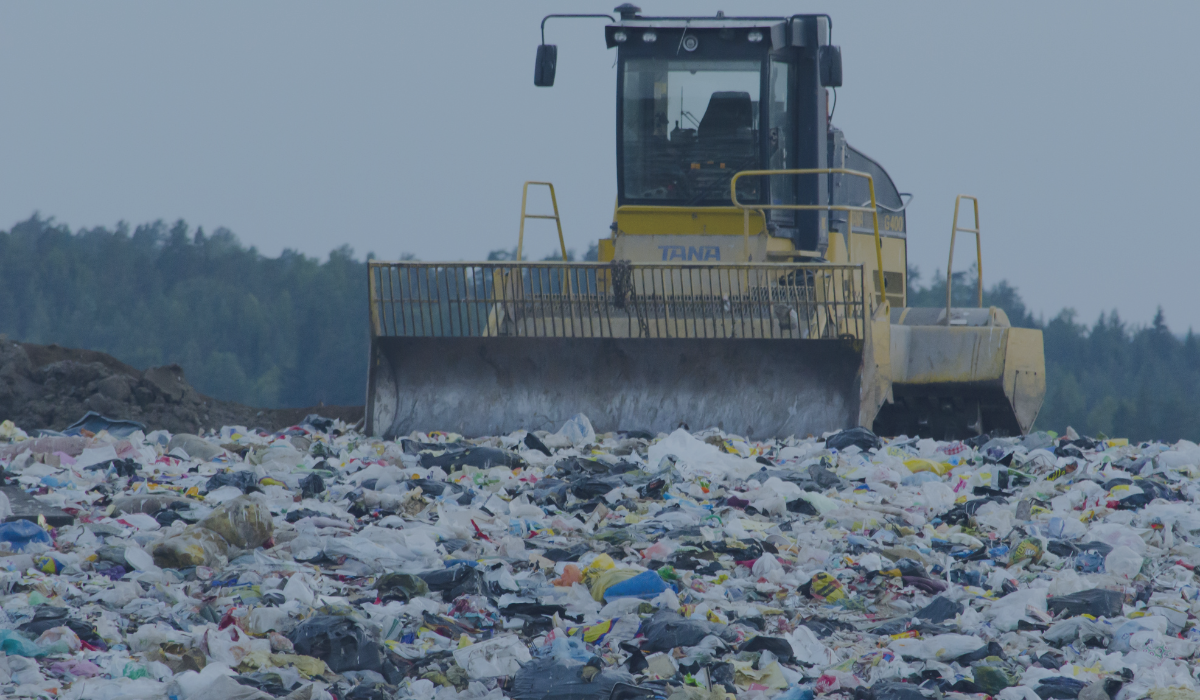The Complete Guide to Hong Kong’s MSW Waste Management Scheme
Introduction
As Hong Kong continues to prioritize environmental sustainability, the Municipal Solid Waste (MSW) Charging Scheme has emerged as a significant step toward waste reduction. Initially proposed to start on August 1, 2024, the scheme aims to create a cleaner, greener city by encouraging responsible waste management practices. However, recent news suggests a potential delay in its implementation. In this blog, we'll explore the current status of the MSW scheme, its purpose, associated costs, and its impact on businesses and households.
Latest News: What is the Current Status of the MSW Scheme? (Updated 27th May, 2024)
The Hong Kong government has officially suspended the Municipal Solid Waste (MSW) Charging Scheme, which had been twice delayed previously. The decision was announced by Deputy Chief Secretary Warner Cheuk, citing significant opposition from residents regarding the citywide rollout of the scheme, which was initially scheduled to begin on August 1, 2024.
The MSW Charging Scheme aimed to reduce waste and encourage recycling by imposing charges on the disposal of household and commercial waste. However, the suspension has raised concerns among green groups and environmentalists, who fear that this decision will undermine Hong Kong's efforts to achieve carbon neutrality and reduce its environmental footprint.
Hong Kong's Chief Executive endorsed putting the plan on hold, responding to the public's concerns and the logistical challenges associated with implementing the scheme. This move has sparked a debate on the future of waste management in the city and the need for alternative measures to address the growing waste problem.
What Happens Next?
With the suspension of the MSW Charging Scheme, the focus now shifts to identifying alternative strategies for waste reduction and sustainable waste management in Hong Kong. The government is expected to explore other measures that can effectively address the city's waste challenges without imposing direct charges on residents and businesses.
Potential Next Steps:
- Enhanced Recycling Programs: The government may introduce or expand existing recycling programs to encourage more effective waste segregation and reduce the overall waste sent to landfills.
- Public Education Campaigns: Increasing public awareness about the importance of waste reduction and recycling could be a key strategy. Educational campaigns can help shift public behavior towards more sustainable practices.
- Incentives for Waste Reduction: Introducing incentives for households and businesses that successfully reduce their waste could be another approach. This might include tax breaks, subsidies for green technologies, or recognition programs.
- Improved Waste Management Infrastructure: Upgrading the city's waste management infrastructure, including better recycling facilities and more efficient waste collection systems, could support more sustainable waste management practices.
- Legislative Reforms: The government may consider new legislation aimed at reducing waste production and promoting recycling, potentially targeting specific types of waste like plastics and electronics.
- Collaboration with Private Sector: Partnering with private companies, such as waste management firms and sustainability consultants, to develop innovative solutions for waste reduction and recycling.
The suspension of the MSW Charging Scheme represents a significant shift in Hong Kong's waste management strategy. While this decision addresses immediate public concerns, it underscores the need for ongoing efforts and innovative solutions to ensure the city's long-term sustainability goals are met.
For more details, you can refer to the articles on news.gov.hk and Hong Kong Free Press.
What is the MSW (Municipal Solid Waste) Charging Scheme?
The MSW Charging Scheme is designed to reduce waste generation by imposing a fee on waste disposal. This fee incentivizes waste reduction, recycling, and proper disposal, aligning with global sustainability trends. The overarching goal is to minimize landfill use, promote recycling, and foster a culture of environmental responsibility among businesses and residents (MSW Charging).
MSW Charging Methods
The MSW Charging Scheme employs two primary methods for waste disposal charges:
1. Charging by Designated Bags/Designated Labels:
This method requires residents and businesses to use designated garbage bags for waste disposal. These bags can be purchased from authorized retailers, and the cost is determined by the size of the bag. Larger items that cannot fit into these bags need a designated label for disposal. This method will be the most commonly used method of disposal by households and small to medium-sized businesses.
2. Gate-Fee System:
This method is primarily for large waste producers, such as factories and shopping centers, or for oversized waste that cannot be contained within the designated bags. Waste is charged by weight when disposed of at refuse collection points or by private waste collectors. This system ensures that businesses with significant waste production pay their fair share based on the actual weight of the waste they generate.

Where to Buy Plastic Bags
Designated bags and labels can be purchased from over 3,000 authorized retail outlets, including supermarkets, convenience stores, and pharmacies. Property management companies are also encouraged to sell these bags to residents. Additionally, businesses and residents can make bulk purchase applications through the EPD.
Authorized Retail Outlets:
- Supermarkets: Wellcome, PARKnSHOP, AEON, Market Place, etc.
- Convenience Stores: 7-Eleven, Circle K
- Pharmacies: Watson's, Mannings
- Online Platforms: HKTVmall, Pricerite, pandamart
The government encourages the use of designated bags as an alternative to plastic shopping bags, promoting waste reduction and reuse. Residents can choose to use their own shopping bags or purchase designated bags for carrying goods, thereby integrating sustainability into their daily shopping habits.
Other Countries with Similar Schemes
Hong Kong's MSW scheme is inspired by successful implementations in other countries. For instance:
- South Korea: Implemented a volume-based waste fee system in 1995, resulting in a significant reduction in waste and an increase in recycling rates.
- Taiwan: Launched a per-bag waste fee system in 2000, achieving a 40% reduction in waste generation and a 70% recycling rate.
- Japan: Uses a combination of volume-based fees and recycling programs to manage waste effectively.
What This Means for Businesses

Businesses must adapt to the MSW scheme by implementing waste reduction and recycling practices. Key steps include:
-
Conducting Waste Audits: Identify waste sources and volumes to develop targeted reduction strategies. Regular audits can help businesses understand their waste patterns and identify opportunities for improvement.
-
Implementing Recycling Programs: Encourage employees to separate recyclables from general waste. Providing clearly labeled recycling bins and educating staff on what can be recycled can significantly reduce the amount of waste sent to landfills.
-
Using Designated Bags: Ensure all waste is disposed of in designated garbage bags purchased from authorized retailers. Businesses need to budget for these bags and incorporate their use into daily operations.
-
Employee Training: Educate staff on proper waste segregation and disposal practices. Regular training sessions can keep employees informed and motivated to follow waste management protocols.
Cost Estimate for Businesses
The cost estimate provided below are based on general assumptions of average waste, and are for reference purposes only. Businesses should independently calculate their own waste disposal costs.
| Business Type | Daily Waste (L) | Monthly Waste (L) | Bag Size Used | Monthly Cost (HKD) |
|---|---|---|---|---|
| Small Office (10 pax) | 20 | 600 | 20L | $66 |
| Medium Office (50 pax) | 100 | 3000 | 50L | $330 |
| Large Office (100 pax) | 200 | 6000 | 100L | $660 |
| Retail Store | 140 | 4200 | 50L | $462 |
| Restaurant | 400 | 12000 | 100L | $1320 |
How Businesses Can Adapt
Businesses, especially those producing significant waste, must take a proactive approach to comply with the MSW scheme. Strategies include:
- Optimizing Waste Segregation: Ensure that all waste is correctly segregated to maximize recycling and minimize the amount of waste requiring designated bags.
- Engaging Employees: Foster a workplace culture that prioritizes sustainability. Employee engagement programs can motivate staff to participate actively in waste reduction initiatives.
- Partnering with Waste Management Services: Collaborate with professional waste management and cleaning services, like Move IT Cleaning, to streamline waste disposal processes and ensure compliance with the MSW scheme.
Move IT Cleaning offers tailored waste management solutions that help businesses navigate the complexities of the MSW scheme, from conducting waste audits to implementing efficient recycling programs. Learn more about our services at Move IT Cleaning.
What This Means for Households

Households must also comply with the MSW scheme by adopting waste reduction and recycling habits. Steps include:
-
Using Designated Bags: Purchase designated garbage bags for waste disposal. Households should ensure they have an adequate supply of these bags and use them exclusively for their waste disposal needs.
-
Separating Recyclables: Sort recyclables such as paper, plastic, metal, and glass. Setting up a convenient recycling station at home can make this process easier and more consistent.
-
Reducing Food Waste: Plan meals to minimize leftovers and compost organic waste when possible. Reducing food waste not only cuts down on the amount of waste that needs to be disposed of but also contributes to overall household savings.
Cost Estimate Table for Households
The cost estimate provided below are based on general assumptions of average waste, and are for reference purposes only. Households should independently calculate their own waste disposal costs.
| Household Size | Daily Waste (L) | Monthly Waste (L) | Bag Size Used | Monthly Cost (HKD) |
|---|---|---|---|---|
| Single Person | 3 | 90 | 3L | $9.00 |
| Couple | 6 | 180 | 5L | $18.00 |
| Family of 3 | 9 | 270 | 10L | $29.70 |
| Family of 4 | 12 | 360 | 15L | $40.80 |
| Extended Family | 15 | 450 | 20L | $49.50 |
Conclusion
The MSW Charging Scheme represents a pivotal shift in Hong Kong’s approach to waste management, fostering a more sustainable and environmentally conscious society. While the scheme's implementation may face delays, its long-term benefits for businesses and households are clear. By adopting responsible waste management practices, we can all contribute to a cleaner, greener Hong Kong.
Stay informed and proactive about the MSW scheme to ensure compliance and contribute to a sustainable future. Together, we can make a significant impact on our environment.
For businesses seeking to streamline their waste management processes, partnering with professional cleaning services can be a valuable strategy. Move IT Cleaning offers tailored solutions to help enterprises navigate the MSW scheme effectively. Learn more about our services at Move IT Cleaning.
You May Also Like
These Related Stories

Hong Kong Suspends MSW Waste Charging Scheme: What’s Next?

Going Green: 6 Practical Steps to Make Your Office More Sustainable


No Comments Yet
Let us know what you think